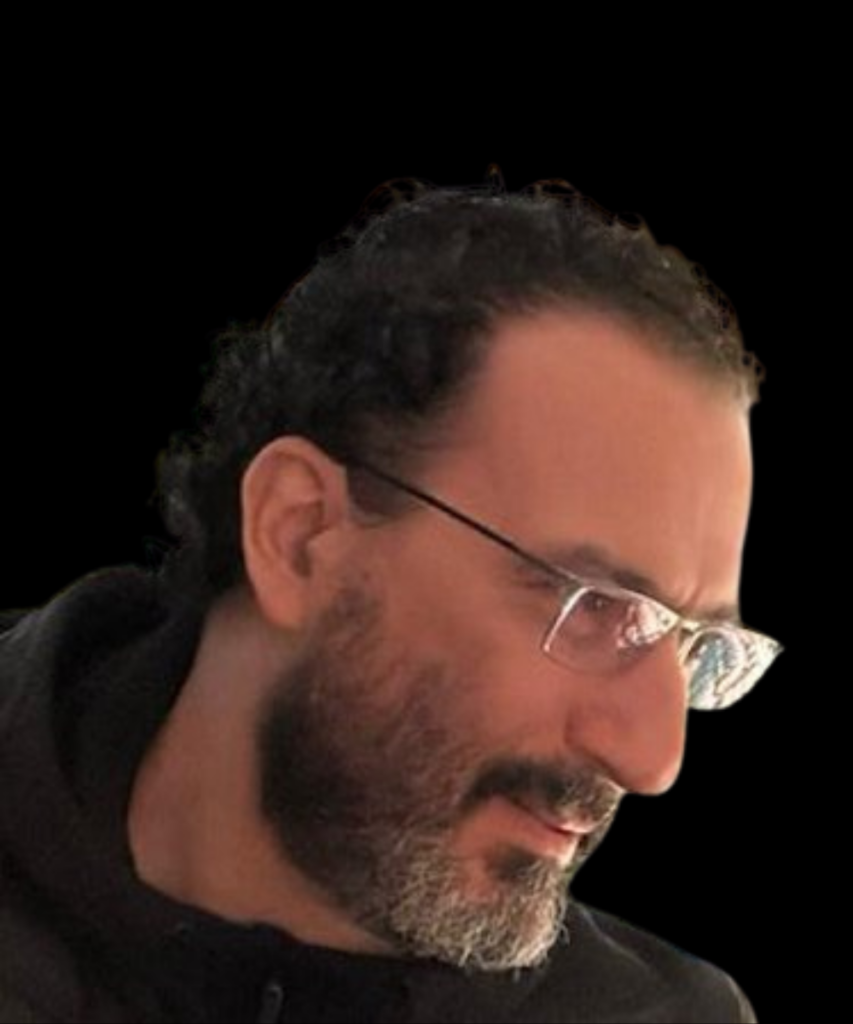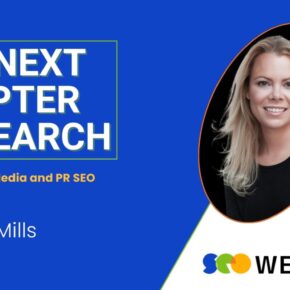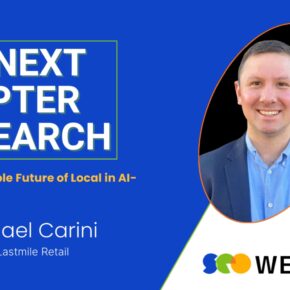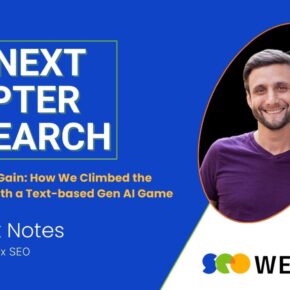
About Elias Dabbas
Elias works at the intersection of SEO, SEM, data science and software development.
He is the creator of advertools, a Python package and CLI, downloaded more than 3.5 million times.
advertools provides an SEO crawler, tools for creating search ads, log file analysis, XML sitemaps, robots tools, and more.
He is the author of the book Interactive Dashboards & Data Apps with Plotly and Dash.
Elias's SEO Week Session
- Title: The Rise of the SEO Data Scientist
- When to Watch: Day 1 | Monday, April 28th | 1:15 pm
- Session Abstract:
Data has always been the bedrock of successful SEO, and today’s explosion of Data Science tools and techniques has opened up powerful new possibilities—even for those who haven’t touched a line of code. In this session, we’ll explore how blending foundational SEO knowledge with a dash of programming know-how can dramatically expand your strategic edge.
- Discover the must-have data skills and tasks essential for modern SEO success
- Explore a curated set of workflows, visualizations, and automations—all ready to plug into your SEO toolbox
- Meet advertools, the free, open-source Python library built by a digital marketer for digital marketers, and see how it streamlines everything from data collection to reporting, to automating many SEO data workflows
Transcript
Garrett: All right, everyone, welcome back to The Next Chapter of Search produced by SEO Week and iPullRank. If you haven’t already got your ticket, we are going to be in New York City. April 28th through May 2nd is going to be a week of the most unbelievable speakers in the world. We are fully international this year, talking everything from SEO, AI, content, digital marketing and data science. I am so excited to be here with you, which I’m joined today by Elias Dabbas, who is the creator of advertools. And we are going to talk all about data. What is up, Elias? How are you doing, man?
Elias: Yes, how are you? Great to meet you and hello everyone else watching us. Very excited to be part of this conference and looking forward to meeting everyone. I’m doing great. How are you doing?
Garrett: I’m fantastic. I, I, we have, you know, kind of had this like internet chatting back and forth for a while. We finally get to meet in person. I can’t wait to pick your brain. Like even before we started doing this, we were already just going back and forth. So let me dive in. Dude, what is your perspective on the current state of SEO? Like big picture, how are you looking at things?
Elias: Great. So I’ll, I’ll tackle this from the, the angle that I work on most. Like I’m not doing SEO per se as I used to long ago. I’m focusing on the data part. And what I see is that in the last 10, 15 years, like we’re always dealing with data, you know, whether it’s search console, Google analytics, crawl data, log files, you name it, the next keyword tool and all these things. And what has been happening all the time is that we’re getting more sources of data that we have to work with. And the sources have more columns and it’s more amounts of data, like in terms of megabytes or rows. So it’s, it’s becoming overwhelming and it’s, it’s difficult to really tease out some, like just basic questions, like “what happened” are becoming quite overwhelming when you, when you consider like you’re, you’re working with like seven, eight data sources and not to mention your own in-house stuff, whether it’s CRM sales and so on. In addition to all the standard digital marketing sources.
But at the same time, there’s something really great and exciting that’s happening in the last 10, 15 years. I think it’s as a result of all the developments happening in hardware and software that this field of data science has developed. And the great news is that it’s, you know, all this, these empowerments in hardware and software mean like, mean that people who have zero programming background can start doing some writing some code and getting really productive. And the great news is that you don’t need to become a software developer. This is something that I talk about all the time. A bit of programming, a bit of statistics and math and your domain knowledge, which is in our case, SEO can go a long way in, in, in gaining insights that you didn’t know you can, you can, you can gain, answering questions you didn’t know you can, you can even ask and getting really productive in, in, in interesting ways, like automating your workflows, visualizing data and, and so on. Did I talk too much?
Garrett: No, it’s good. Because to your point, it’s, it’s overwhelming, but there’s so much opportunity if you haven’t spent years and years and years learning data science, but there’s still a big education factor. There’s still a ton of value, which kind of leads right into your topic for SEO. Can you kind of give some insights into what people will learn? Like why should they come see you and learn about the value of the data scientist?
Elias: Sure. So, what I’m going to try to show is the sweet spot that is available for us as, as digital marketing people. I’m not going to say that this is better than other ideas or this is right or wrong. I’m just going to say, this is the sweet spot with minimal knowledge, minimum viable knowledge, if you want, with a bit of programming, a bit of, and lots of data education, like visualization, machine learning, statistics, and all these things, they get left out with, with people focusing on Python only.
So, the sweet spot is you with a Jupyter notebook, a few main data science libraries. I’ve created one of them. Hopefully this, this helps and I’ll show some, some value in it, hopefully. And by the end of the, of the talk, I’m going to show a few minutes of how you can really get started from scratch. I actually have a video, which is, which is literally eight minutes where you install Python, install two, three packages and actually crawl a website from, from, from scratch.
So, I hope this, this gets people excited about getting started with, with this field and then show how, how similar this is actually to Excel functions. If you know how to run an Excel function, which is you put the name of the function, you open parentheses and you put a bunch of parameters. This is how we do it in, in, in, in data science with, with in a Jupyter notebook and with all the functions that we have. You don’t need to create these functions. Other people have done so. There’s a function for crawling websites, the function for analyzing log files. There’s function for XML sitemaps for visualization, you know, just pick and choose what you want. And hopefully it shows that it’s, it’s, it’s interesting and fun. I’m not going to say that it’s, Oh, easy. Anyone can do this in two days. It’s not, but you know, just like anything else worth learning, it’s, it’s worth learning well.
Another important thing is that people’s SEO knowledge can go a very long way in, in, in getting those insights and doing much better data science because you understand what’s, what’s going on. And you know, when you look at status codes, for example, these are not just random numbers, you know, you’re not going to someone who doesn’t know what status codes are might come and get, “Oh, my average status code is 322.3.” Doesn’t make sense. But because you know SEO and you know these are not quantities, you know what makes sense. You can look at certain numbers and say, this feels a little off because you know, this measurement is typically not that big or not that small and so on.
And when I started, I found out that this, my domain knowledge was really, really helpful in, in creating some really useful stuff. From a, from a programming perspective, you’d look at them and they’d be like really simple things. But you know, I used to spend weeks generating keywords for PPC campaigns. Go to the keyword tool. “Yes. Oh, no, no, no. Wait a minute. Did I miss that? That’s my 7,562nd keyword. Oh, that should have been a no. Oops, there goes $5,000!” So, creating such tools for these things can be much better done if you know the use case then because we’re not doing software engineering here. We’re not, you know, building tools for Google or Amazon. We are just getting productive in our own work with our own laptop. And that’s, that’s a beginning. Like if people get started and want to expand and specialize in machine learning, they can do so. Some people like myself, I wanted to build some tools. You know, it’s, it’s up to people to do whatever they want. So, I hope that makes sense.
Garrett: Yeah, it’s so exciting. And I love what you’re doing empowers people because it’s like, to your point, all these open source libraries that should be used for SEO, where if you are an SEO, but you’re not a full developer, it really empowers you to do a lot of things, to customize things and answer those questions that you might have like felt helpless to or felt dependent on an engineer every time where it’s like, okay, if you do invest a little bit of time, like you said, it’s not always just out of the box, but you’ve invested a little time, and you can apply that to your work and be better at what you do in your little slice of the internet. So, can you give us like, what’s one specific tactical takeaway for listeners that they can do right now?
Elias: So, I think we can, we can, we can share the link to that video where, you know, we can go from scratch to installing Python and crawling a website within eight minutes. And I show the full process. Like it’s not, I know many of those videos that we all see online, that someone does something in three minutes, and then you try to like, “It doesn’t work!” I get to be that guy this time, but hopefully it works for you.
Garrett: That’s awesome. So yeah, you’ll be able to check that out and give it a try and start play with it either to prep for Elias’s talk or to do it, which, you know, people will be able to find you online as well, because you’re, you’re all over the place. I am curious though, one, like the whole theme of this SEO Week is The Next Chapter of Search. So many things have happened over the last 12 months, last 24 months. So almost in the context of big data, what’s your perspective? Where do you see everything going?
Elias: Sure. So, I think we’re going to have more of what I talked about in the beginning, which is more data sources, more data quantities. There’s that detail that’s called generative AI that you might’ve noticed or heard of. That’s going to also be obviously very big. And again, I’m going to show that data science skills are going to be very helpful with, with LLMs prompting them. So, the concept of prompt engineering is more like known as communication skills, plus keep trying a thousand times until something works. I’d like to propose that prompt engineering is more about creating a prompt template that you can use and reuse for thousands of pages, let’s say, you know, so yes, it’s great to take an article and use an LLM to get whatever you want from it, like, you know, extract entities, find the main keywords, the topics, whatever you want, summarize it, rephrase it and so on. But I think it would be great if we can do this in bulk and you need very basic programming skills to be able to do that.
A four loop where you have, you know, “please do X, Y, Z to the following article” where it is well-defined and you can get like 500 classifications of those 500 results in 20 minutes. And that can give a very quick, you know, insight, a bunch of insights that you can get started with, you know, because otherwise if you want to read 500 articles and get the entities and evaluate the titles and it’s going to take a lot of time. And sometimes you’re going to be like, “well, it’s too costly to do this.” But if I get, if I have a prompt template that I can use to extract all these insights about those hundreds or maybe thousands of URLs, why not do it, you know, it’s going to take a couple of hours.
I created an app a few months ago and I released an update a few days ago, which is using the same concept. It’s a prompt template. “Please answer the following questions about this article and make sure it’s only true and false.” And these are like, you know, 20 things that are taken from Google’s helpful content guidelines. So, the idea is if you get a result that says 80% of your titles are exaggerated and shocking in nature, you know, that’s a very good start to know something about your content, or maybe they’re not that authoritative. Like, you’ve done your homework well, but it’s not the kind of stuff that you would find in a book or an encyclopedia. So, you know, that kind of work that, you know, leveraging LLMs in bulk is something that I think is going to be important, that’s going to differentiate people, especially if you have very basic programming skills. And once you have that, you know, minimum viable knowledge, you can prompt the LLM to say, you know, write the code to do this, or, you know, help me debug this code for that. And it can, you can get really productive really, really fast with LLMs without software engineering and building, you know, that’s…
Garrett: That’s the key. I’m with you. I mean, because that’s the critical upskill right now. Like yes, you can delve deep, you can get into machine learning and really know, you know, kind of explore this whole discipline. But to get that MVP, the minimum or the minimum viable, the MVK, it really is going to be important to basically, I hate to use the term supercharge or superpower, but like leverage the potential of an LLM in a responsible way with data using its capabilities, and then you provide the insights, the analysis at scale. People can do that. Elias, this is cool. I am super excited to hear your talk. Thank you so much for joining me today. I appreciate it, man.
Elias: Thank you very much. It’s an honor to be here. I really appreciate all the work that you’re doing, and I can’t wait to be in New York and meet everyone over there.
Garrett: There you go. So not only would you get to see this really awesome presentation from Elias, but hopefully you can snag him, get some opportunities to chat with him. We can have all these fun, you know, future of search and data conversations behind closed doors. So get your ticket. SEO Week is the end of April, the 28th, in New York City. Make sure you get it! Produced by iPullRank, and we will see you there. Bye-bye.
Elias: See you there. Thank you very much.



